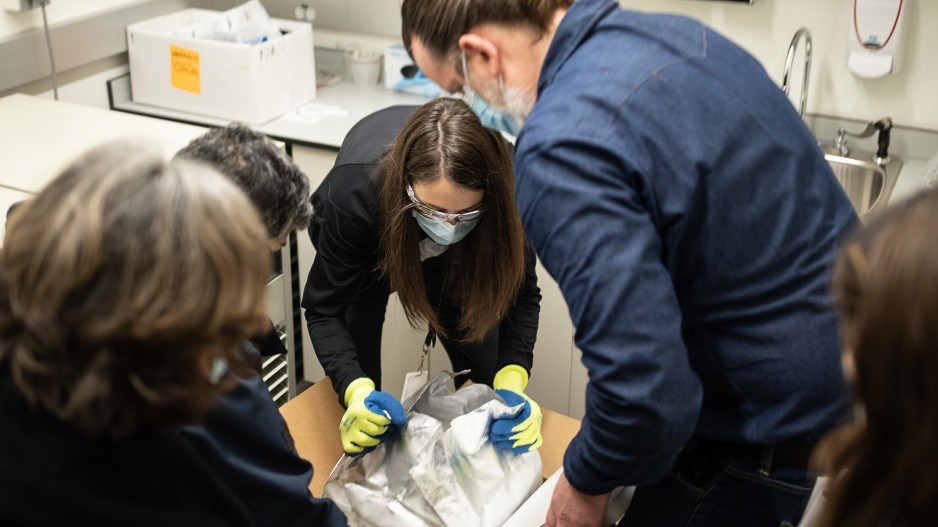COVID-19 vaccine doses have arrived in all of B.C.’s health regions after an initial week of distribution that saw doses administered only within Metro Vancouver.
B.C. provincial health officer Dr. Bonnie Henry said Monday (December 21) other regions are now preparing to get immunization clinics underway in the coming days.
Doses were initially only administered at two sites — one in the Vancouver Coastal Health Region and another in the Fraser Health Region —with 3,644 “mostly health-care workers” receiving shots last week, according to Henry.
Doses have now been delivered to nine sites throughout B.C.
“Last week was a great kickoff for immunization programs across the province,” Henry said during a media briefing.
“We will have more information and more details about exactly how much vaccine and who is eligible to receive the vaccine, where and how, so please be patient. And as more information becomes available we will be sharing.”
The initial delivery of the Pfizer Inc. (NYSE:PFE) and BioNTech SE (Nasdaq:BNTX) vaccine consisted of 3,900 doses, meaning not all of those doses were administered upon their first week of arrival.
And despite the Moderna Inc. (NYSE:MRNA) vaccine getting approval from U.S. regulators late last week, Health Canada revealed earlier Monday that it cannot provide a “definitive” time for completion of its own review.
Instead, the Canadian regulator said it expects its review to be completed in the “coming weeks.”
So far the federal government had secured up to 168,000 doses of the vaccine that could be delivered by month’s end, pending regulatory approval.
Once given the green light by Health Canada, those doses would be expected to arrive within 48 hours.
Unlike the Pfizer vaccine, which must be maintained at temperatures of -80C, the Moderna vaccine is easier to handle and transport as it requires to be maintained at just -20C.
Pfizer is responsible for delivery of its vaccine and requires that it must be administered at the point of delivery because of how sensitive it is to handle.
Henry said she’s hopeful that once the supply chain is proofed, Pfizer will loosen those restrictions and allow the doses to be distributed more easily, such as at long-term care homes.
Because the Moderna doses are easier to transport, it’s seen as critical in ensuring remote regions in Canada have access to vaccinations.
“We’ve developed a strategy and the initial part of that strategy for when we receive the Moderna vaccine, when it becomes licensed by Health Canada, that we can bring that out to a number of remote and isolated communities and into care homes,” Henry said.
About 380,000 British Columbians are expected to be vaccinated by the end of March.
B.C. has a population of about 5 million people.
All provinces have agreed to shift the per capita proportion of Moderna vaccines to the territories to make distribution easier for northern regions, meaning fewer doses of the easier-to-transport vaccine are destined for B.C.
Meanwhile, on Sunday, Ottawa implemented temporary travel restrictions on those coming from the U.K. after it emerged that a variant of COVID-19 is circulating in the country.
Henry said there is no evidence this variant has made its way to B.C. or Canada at this point.
She added it does not appear the variant has increased the severity of the coronavirus but, instead, is more transmissible.




